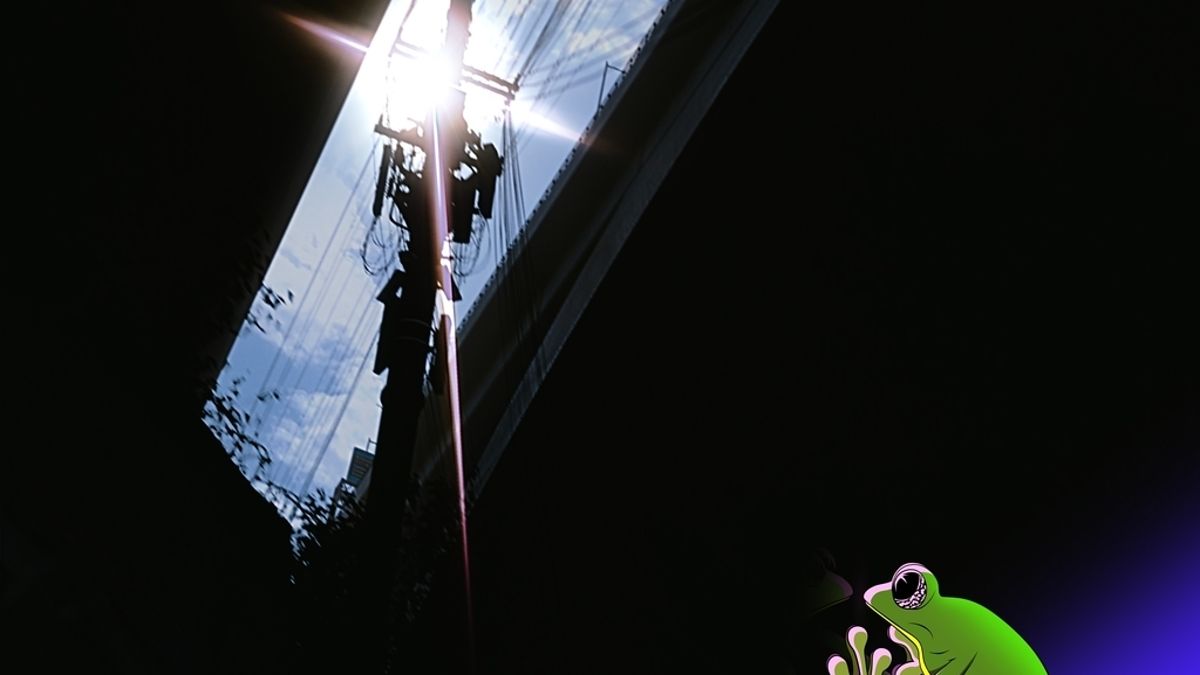Bladee and Yung Lean forge a new path on Psykos
by Ben Gardner
2024-04-17

When you think of Swedish Cloud rap, it’s very likely the first two artists you think of are the enigmatic and iconic Yung Lean and Bladee. The two of them, along with the rest of their Drain Gang/Sad Boys kinsmen, have forged a unique path since they first started making noise in the Stockholm underground scene in the early 2010s. Although they have had many collaborations through the years - from “Hennessy and Sailor Moon,” to “Gotham City,” to the more recent “Victorious” and “Bullets” - they had never done an album together until now. This also marks the first time that either have done an album without any production from their typical group of producers.
Both of them have flirted with rock/punk soundscapes in their music previously. Before he was the Drain CEO, Bladee and his best friend/fellow Drain Gang member Ecco2k had a punk band in middle school called Krossad. Lean has experimented extensively with acoustic sounds with his side project, jonatan leandoer96. The production is handled by Palmistry and silent$ky, who went through an intense process to create the instrumentals on the record, replacing the catchy synth lines and 808s of Whitearmor, Gud, and Yung Sherman with guitar motifs and acoustic drums. Although in new territory, both Bladee and Yung Lean sound comfortable and are distinctly themselves, demonstrating that they and their unique sound aren’t defined by their production.
Interestingly, the album starts with ‘Coda,’ a spoken word meditation that represents the end of one era of their music - as well as the start of something new. While Bladee croons over the slow instrumentals, Yung Lean works through his past: “Dirty drugs since thirteen, I think it’s just the fame.” Although thought provoking lyrically, it sounds monotonous, and is definitely the weakest track on the album. Next is the reverb-soaked “Ghosts,” on which Bladee rejects his recent turn to the positive on his album Crest and delivers lyrics one might expect from Eversince over hypnotic guitar lines: “Only you can glue my blue and broken, shattered, battered, porcelain heart.” He also discusses themes of one-sided love, a common theme in much of his music. Lean describes their patchwork spiritual ideals poetically, rapping “We wrote a Bible in Sanskrit.” Both of them, especially Bladee, have always included mystical and spiritual allusions in their songs, melding Christian and Eastern beliefs.
The more accessible sound of this album has provided me with much ammunition to put people on to Lean and Bladee. “Golden God” has an infectious repeated guitar riff, as well as relatively palatable indie-rock-type vocals from both. “Sold Out” is similarly upbeat and catchy, with shouted/sung vocals from Lean and wistful musings from Bladee. Although the album is more sonically palatable than much of their previous work, there are still abrasive moments here and there that harken back to their early days.
I’ve always loved the contrast in vocal styles between Bladee and Lean. Even though they are close friends and have worked together extensively, they have pretty different approaches (although not without some similarities), which is evident on this album. Lean utilizes less autotune than usual, opting for more of a post-punk, shouty vocal style with some distortion. In contrast, Bladee sticks to a more familiar autotune-heavy approach. This distinction adds texture and variety to the record, which is exemplified on “Still.” The track starts with a repetitive meditation on the meaning of life by Bladee, mirrored by the less melodic chorus and second verse by Lean. The penultimate track, “Enemy,” also contains contrasting vocals, with Bladee’s warbling intro and Yung Lean’s pleasantly abrasive verses. I love the intermingling of their voices as the song climaxes, mixing the sounds of man and machine.
I believe that “Enemy” is the best and most important song on Psykos. It marks the climax of the album, culminating in one of its best lines: “Inside there’s a light that’s abandoned.” The track also marks a thematic shift. The first six songs are introspective, melancholy, and reflective, Bladee and Lean sift through their past and try to find meaning in it and life itself. This sentiment is exemplified in “Hanging From The Bridge”: “How long, how long can we hold on? // Holding on to a thread // Thoughts spinning in my head.” Psykos is a self-psyko-analysis of the unique minds of both artists. At the end of “Enemy,” Lean wards off dark thoughts by repeating “Fire and love wash over me,” transitioning into the hopeful outro “Things Happen” where they come to their conclusion. Instead of holding on to their bad experiences and struggling to find meaning, they choose to “Just let go.” Yung Lean and Bladee emerge out of their struggle triumphant and ready for the next stage of their careers.
Those who stumbled upon the first collaborations between these two Swedish outsiders in the early 2010s would never have expected their first full album together to be anything like Psykos. This album is a testament to both artists’ drive to create and evolve past their humble roots, and I’m sure that their future work will continue to take us by surprise.
